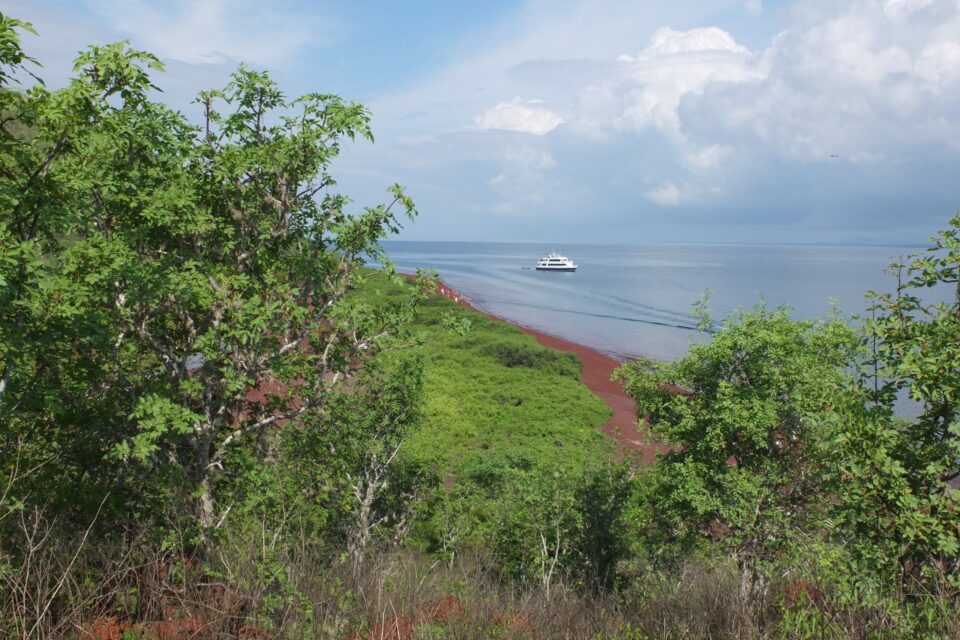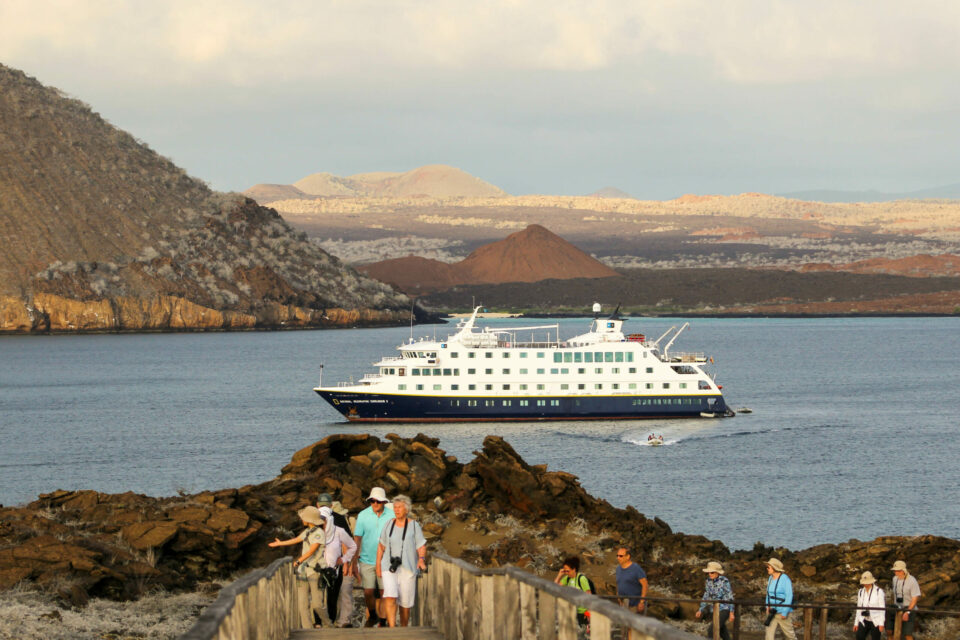

How can we make tourism a regenerative force for good for Galapagos?
GCT's Programmes & Public Policy Manager, Lucía Norris, recently attended a tourism workshop in Galapagos to map out the best way to bring regenerative tourism to the Islands.
Ever since Darwin arrived in Galapagos in 1835, the Islands have become synonymous with conservation and are now one of the most popular eco-tourism destinations in the world. Tourist numbers have rapidly increased over the last decade, rocketing from 73,000 visitors in 2000 to 271,000 in 2019. Despite the global pandemic resulting in a complete halt to tourism to the Islands throughout 2020, the industry has since been recovering, with the number of tourists visiting reaching pre-pandemic levels again.
The increase in tourist numbers over the past few years has had knock-on effects on the Islands and the many species that call them home, including facilitating the spread of invasive species such as rats and goats and the increased strain on health, food, water and waste management systems. While tourism offers a lifeline to many on the Islands, representing over 80% of the local economy, it is also an unstable industry, highlighted by the global pandemic.
This context sets the stage for the regenerative tourism workshop I recently attended, “A Path Towards Tourism to Conserve Biodiversity and Foster Island Community Development in Galapagos,” held on Santa Cruz island from 7 – 9 August. The workshop’s objective was to outline a pathway for tourism to become a regenerative force for Galapagos ecosystems and communities.
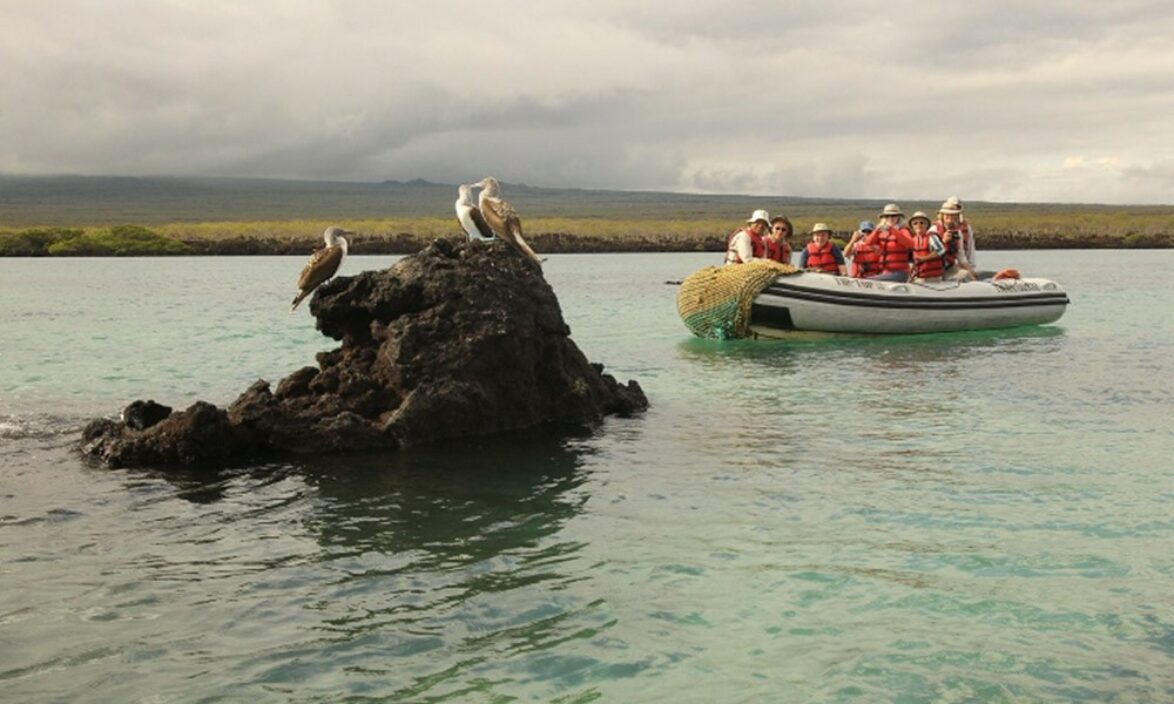
The workshop was organised by the Galapagos National Park Directorate (GNPD) together with the Charles Darwin Foundation, Universidad San Francisco de Quito, Talking Transformation, Christ’s College – Cambridge University, the Galapagos Hub for Sustainability, Innovation and Resilience and Galapagos Conservation Trust (GCT). The three-day event was attended by over 40 representatives from various industry sectors, including the Central Government and Galapagos Municipalities, national and international researchers, government experts, tourism operators and NGOs.
The aim of the workshop was to understand the issues caused by tourism and propose guidelines and the next steps needed to solve these challenges. During the workshop, we discussed the ‘Regenerative Tourism’ concept, designed to benefit local communities and wildlife by replacing the exploitative nature of ‘traditional tourism’ we often see today. We looked at regenerative tourism case studies worldwide, including New Zealand, to understand how these strategies could be replicated across the Galapagos Islands. Using this information, we mapped out ways in which regenerative tourism could be implemented in Galapagos to benefit people and nature collectively.
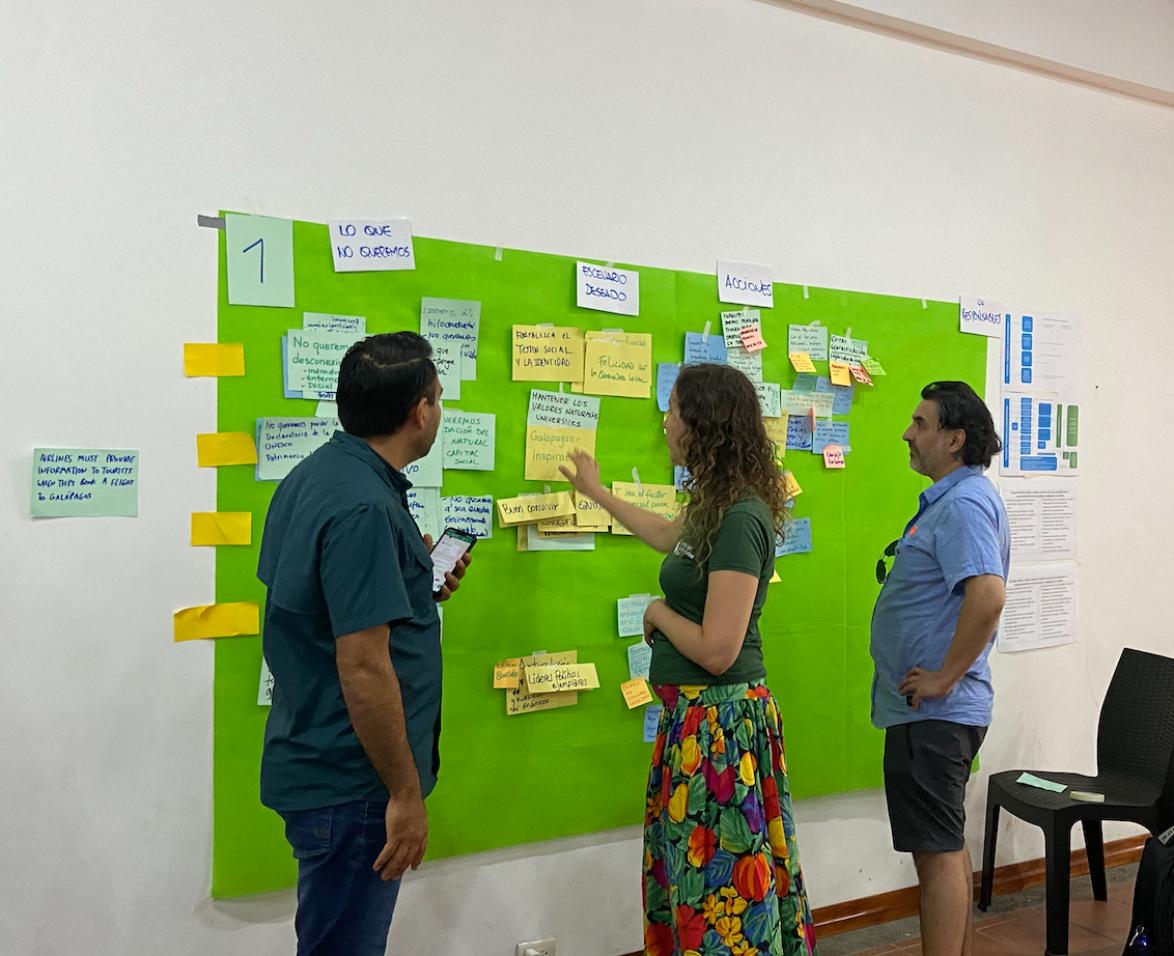
80 %
of the local economy in Galapagos comes from tourism
By the end of the workshop, representatives from the GNPD, Galapagos Governing Council, Ministry of Tourism and Municipalities reaffirmed their commitment to bring regenerative tourism to the Galapagos Islands. At GCT, we are also committed to supporting the Galapagos tourism industry and its transition into a more regenerative force that benefits nature and the Galapagos community. We will continue helping local authorities and partners to ensure this transition is as smooth as possible.
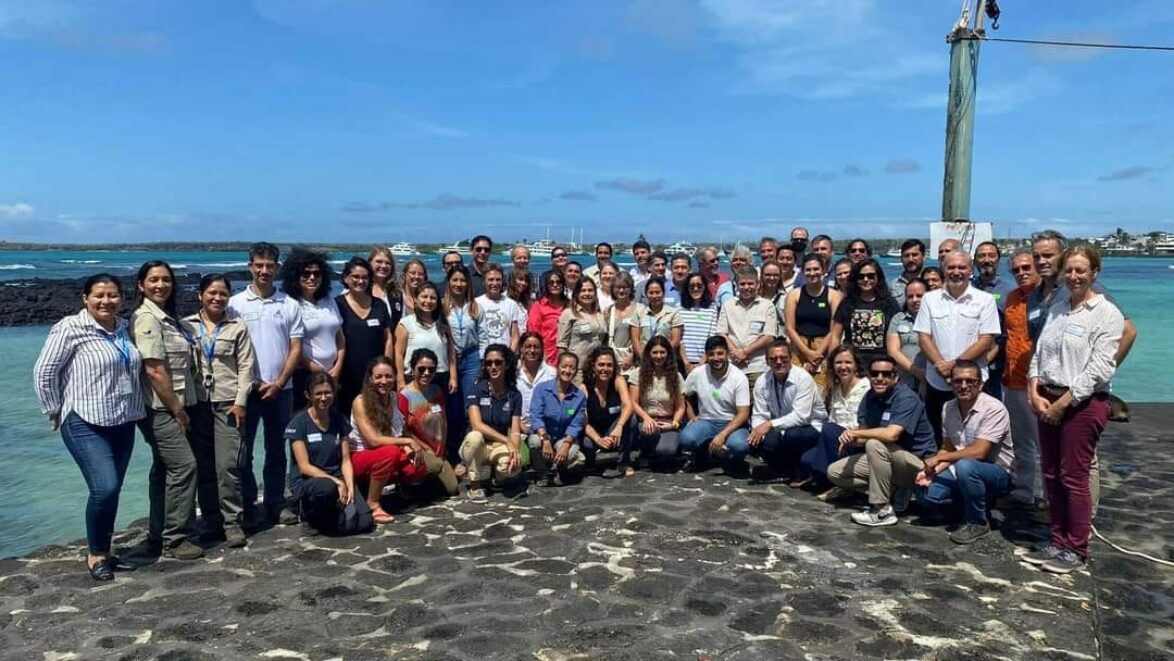
Regenerative tourism seeks to benefit local communities and wildlife by replacing the exploitative nature of 'traditional tourism' we often see today.
How you can help
Help us protect one of the most unique and ecologically important places on earth by donating, adopting a Galapagos animal, or becoming a member of GCT.
GCT believes sustainable, well-managed tourism is vital to protecting and restoring the Galapagos Islands.
Travelling responsibly around the Galapagos Islands
Our vision is to see the unique nature and beauty of the Galapagos Archipelago conserved and protected in perpetuity – and you can help.
Related articles


Galapagos and the Antarctic: A look beneath the surface
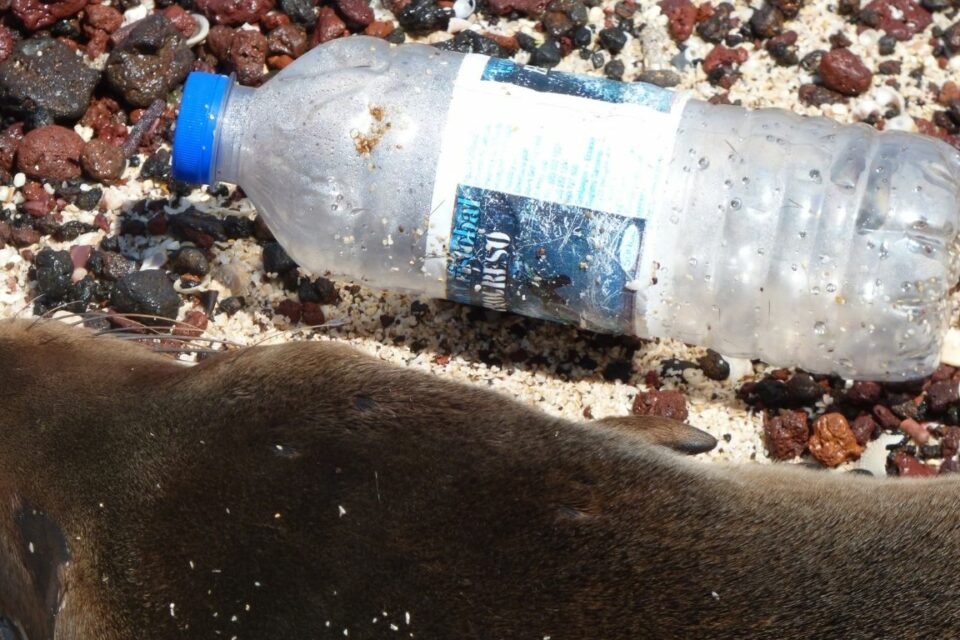
My time as a researcher for GCT: investigating the relationship between tourism and plastic waste in Galapagos
